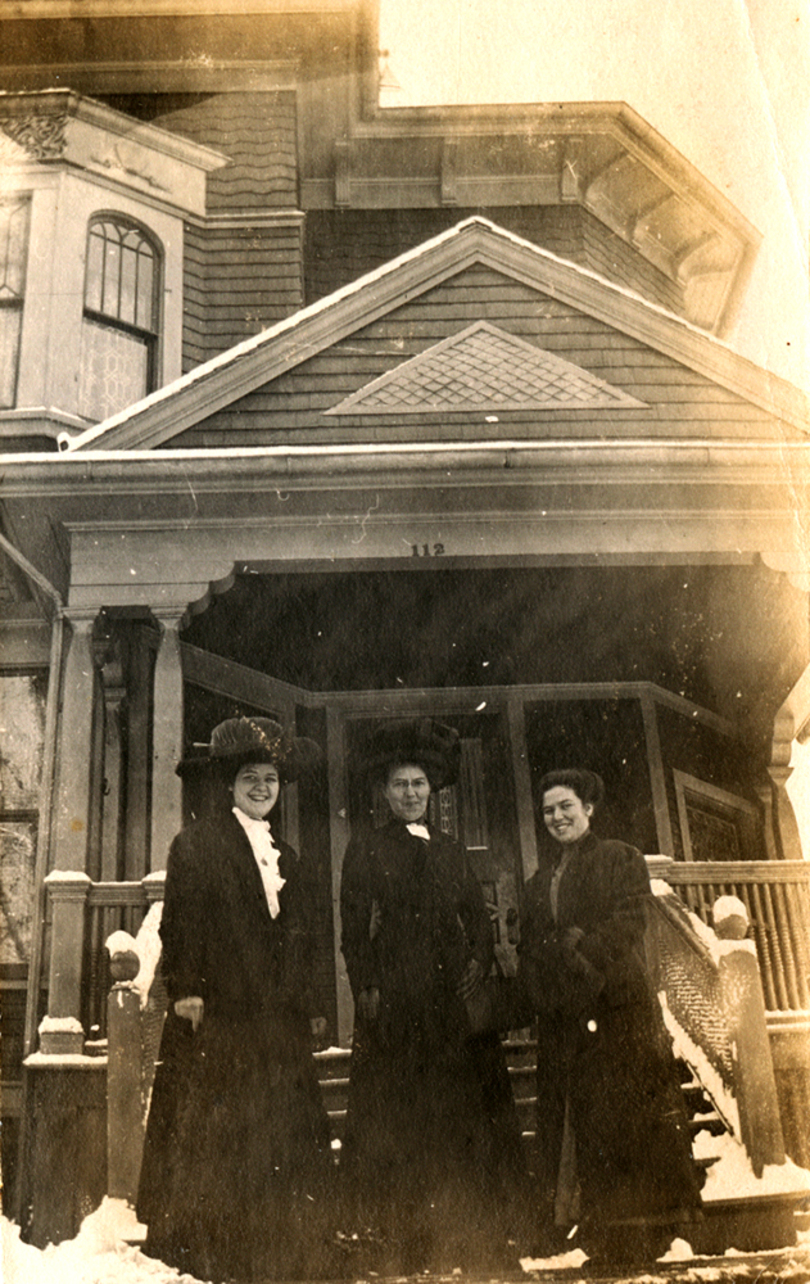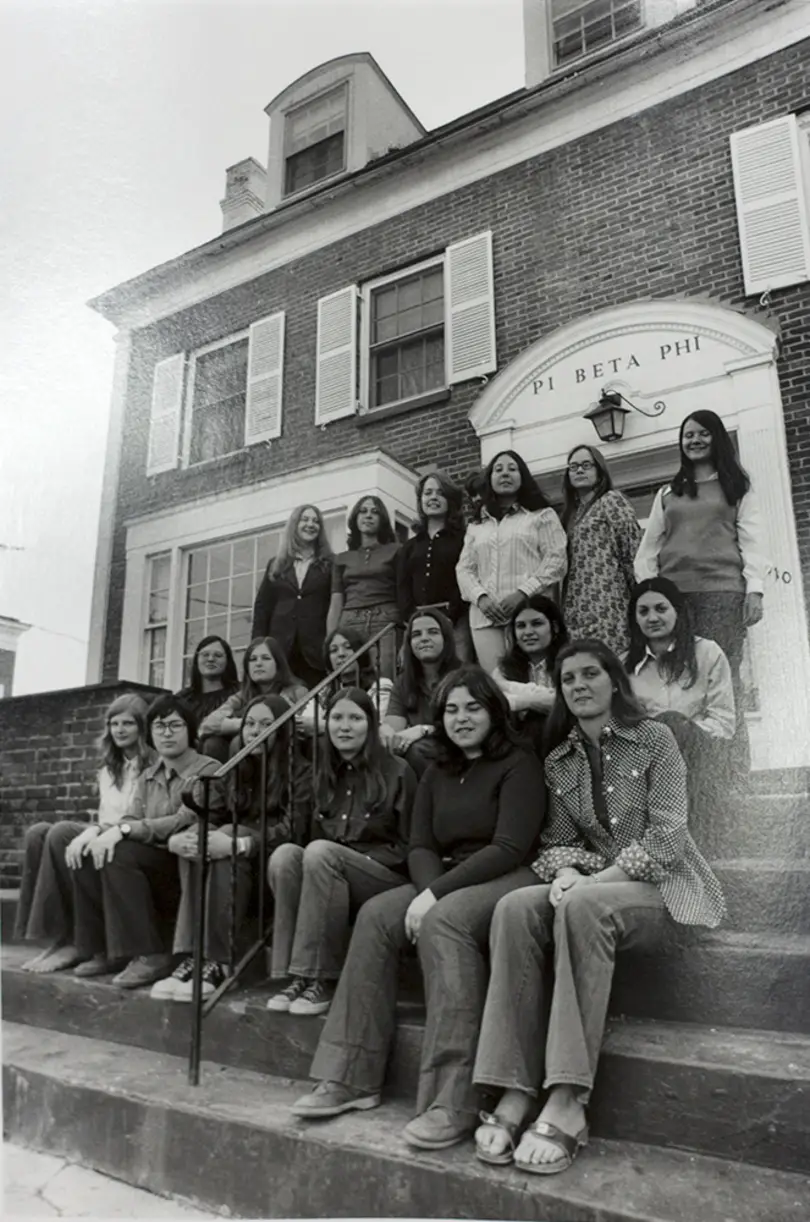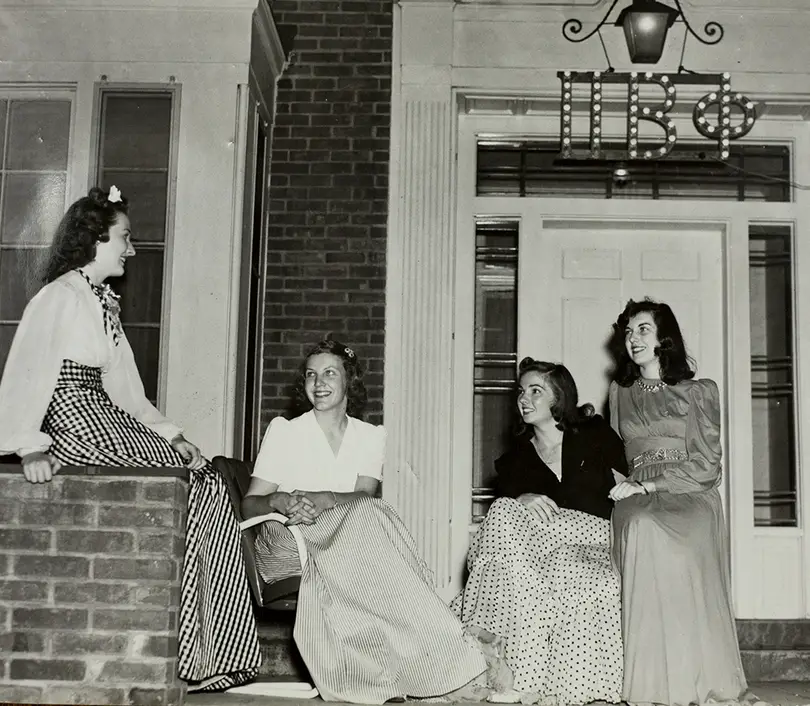‘I’ll always have my sisters’: As Pi Beta Phi prepares to leave campus, sisters, alumni reflect on chapter’s history
Almost 117 years ago, nine Syracuse University women started a secret society with a specific purpose: They wanted to be Pi Beta Phi sisters.
Through word of mouth and family connections, the first New York Pi Phi chapter, known as the New York Alpha chapter, was formed on Feb. 11, 1896. As membership grew, the sisters began holding meetings on the third floor of the Hall of Languages, making dinners of fried chicken and Neapolitan ice cream at 732 Comstock Ave., and later hosting the first Eastern Pi Beta Phi Fraternity conference.
By the time the 34 sisters settled into 210 Walnut Place in 1939, the Pi Phi chapter had established a name and home for themselves.
—
The letter Tracy Gensler got two weeks ago was the hardest one to read.
For the past 18 months, Gensler and her fellow Alpha alumnae sisters received letters from Pi Beta Phi headquarters, detailing the chapter’s recruitment issues and “the benchmarks” it wasn’t meeting.
In the letter, Gensler learned the place she called home from 1980-1984 would be sold.
The Pi Phi chapter announced last fall that it would not participate in spring recruitment and would close at the end of this semester. The chapter faced several recruitment challenges during the last few years, and was unable to build membership despite its work with local alumnae.
Members voted to relinquish the charter at a fall chapter meeting. The fraternity’s Grand Council voted at its October meeting to allow the chapter to operate until the end of the school year.
The New York Alpha chapter house is currently under contract to be sold to Phi Delta Theta’s chapter, which recently returned to campus as an official fraternity. It will take possession of the property on June 1, said Eily Cummings, marketing and communications director for Pi Phi’s headquarters, in an email.
The funds made from the sale will be placed into a New York Alpha restricted funds account for the next 20 years and can be used in the future if the New York Alpha Chapter recolonizes on SU’s campus, Cummings said.
“We’re all really, really sad about the sale of the house,” Gensler said. “We (alumnae) often talked about meeting at the house for a reunion. It’s just so hard to believe that the house won’t be owned by Pi Beta Phi anymore.”
The chapter was first placed on probation in 2007 because it wasn’t meeting “membership expectations,” and started receiving extra support because of this, Cummings said.
While the probation was lifted in 2011, the chapter was placed on probation again in spring 2012 because membership numbers and finances had reached a critical point, Cummings said.
Cummings declined to comment on the specific strategies used to try to increase membership.
The idea of receiving help from alumnae and headquarters doesn’t have a negative connotation, said Alyssa Goldfarb, current New York Alpha chapter president. Headquarters involves itself in chapter affairs to show support and to teach the sisters how to be successful in recruiting, she said.
The rush and recruitment process has become more competitive through the years, said Fran Becque, a greek life historian and New York Alpha alumna.
“When your chapter is half the size of other chapters, it’s difficult. It’s difficult to do things and it’s difficult to take part in events,” said Becque, who is also Pi Phi’s official historian.
She added that in terms of a historical perspective, other sororities on SU’s campus and nationwide have experienced similar recruitment problems.
Although the chapter relinquished its charter, the remaining undergraduate members will have alumnae status and receive all of the benefits.
“The sorority sisters have worked very, very hard to try to stay. I really commend the local alumnae who’ve helped them,” Gensler said. “It’s a very sad day for all of them. I’m very sad that they won’t have a place to call home anymore. That’s the hardest part.”
—
A Pi Phi sisterdoesn’t care about the superficial things. She has integrity and is dedicated to bettering her community.
But more importantly, she’s comfortable in her own skin and makes others around her feel the same.
That’s what Goldfarb, current president, felt when she first walked into 210 Walnut Place in 2009.
“I knew I could share my college experiences with these girls. The environment was very honest and open,” she said.
It was the same feeling for Gensler, the alumna. Every Sunday after chapter, Gensler and her 50 sisters would squeeze into the kitchen to eat the cook’s famous Mississippi mud pie. They would laugh and tell secrets for hours. The Pi Phi sisters enjoy being together.
When alumnae come back and visit the chapter, Goldfarb said they say the chapter has stayed exactly the same and has remained true to the values of the nine founding sisters.
Goldfarb said that in recent years the Alpha chapter, like other greek organizations on campus, has followed Chancellor Nancy Cantor’s efforts and initiatives to become more immersed in the city of Syracuse.
In 1994, Pi Phi was one of the first greek organizations to be involved in projects that helped better the university’s relationship, specifically regarding the greek system and the local community.
“I think it is important that both parties realize that the other one isn’t going to be going away. So you cannot try to ignore or push the other ones away, and we can just kind of work together, maybe in a better way than we’ve done in the past,” said then chapter president Maura Atkinson in an April 14, 1994 Post-Standard article.
Now, the New York Alpha chapter conducts its philanthropy at the Dr. King Elementary School in the city of Syracuse. With the organization’s focus on literacy, the chapter sisters organize a reading enrichment program for third grade elementary students to develop reading habits.
“Pi Beta Phi’s New York Alpha Chapter has made a real impact on the SU campus, on generations of alumnae, and on the community. Their impact is not just a matter of the length of the chapter’s history at SU, but of the intensity and sincerity of the commitment that its sisters have made to engagement on and off campus, especially through their emphasis on literacy,” Cantor said in a statement to The Daily Orange. “They have made a real difference in the lives of children locally—for example, at Dr. Martin Luther King, Jr. School in Syracuse. That’s an enduring legacy of which every Pi Beta Phi sister past and present can be very proud.”
Fourteen of the 23 sisters will graduate at the end of this year. The remaining nine sisters will leave in the following two years. Though the sisters will leave campus, Gensler is confident the New York Alpha chapter will return one day.
“I don’t think this is the end of Pi Beta Phi at Syracuse University. They’re not done. They’ll come back,” Gensler said.
As the chapter prepares for the end of the semester, Goldfarb said she and her sisters are solely focusing on spending time together.
Said Goldfarb: “I just know that the memories don’t end. No matter what city or what chapter, I’ll always have my sisters.”
Published on January 31, 2013 at 1:52 am
Contact Meredith: [email protected] | @MerNewman93







